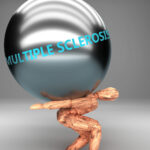Migraines affect more than one billion of the global population. Despite its prevalence, it has historically been overlooked as a leading cause of disability. Research is still ongoing about the debilitating disease, but we know that patients suffering from it can be miserable for days without much hope for relief. Medical cannabis for migraines is now emerging as a possible method to help relieve the symptoms of the disease, and several patients have reported a decrease in both the severity and frequency of migraine attacks following medical cannabis use.
What are Migraines?
A migraine is a type of headache characterised by a severe or moderate throbbing or pulsing pain, often on one side of the head. Migraines are often accompanied by other symptoms such as nausea, vomiting and sensitivity to light and sound. Some people also experience an aura before migraines, including visual disturbances such as flashing lights or blind spots. The exact cause of migraines is not fully understood, but they are believed to be related to changes in the levels of certain chemicals in the brain, as well as changes in blood flow to the head.
How are Migraines Different from Headaches?
Although often confused as being the same things, headaches and migraines are two different types of head pain, even though they share some similarities. Migraines are typically more severe and longer-lasting than other types of headaches. While a headache may last a few hours, a migraine can last several days.
As mentioned above, migraines are usually accompanied by other symptoms, whereas these symptoms are much less common in headaches. Certain external stimuli, such as certain foods, changes in sleep patterns or stress, can also trigger migraines. On the other hand, headaches can be caused by various factors, including tension in the neck and shoulders, sinus pressure and certain medications.
How is Medical Cannabis Used for Migraines?
Medical cannabis is a treatment option that some people use to manage symptoms associated with certain medical conditions, including migraines. There is some evidence to suggest that cannabis can be effective in reducing the frequency and severity of migraines.
Medical cannabis contains chemical substances called cannabinoids, which interact with the body’s endocannabinoid system, a system involved in regulating pain, appetite and mood. The most well-known cannabinoid is tetrahydrocannabinol (THC), which is responsible for the plant’s psychoactive effects and has been found to have pain-relieving properties. Another important cannabinoid is cannabidiol (CBD), which is non-psychoactive and has been found to have anti-inflammatory and anti-anxiety effects.
It’s important to note that while many people with migraines have found relief with medical cannabis, as with any other medication or treatment, it is not a one-size-fits-all solution. Consulting with one of MyAccess Clinic’s medical cannabis specialists is essential if you are considering using it to relieve migraines. We can not only guide you about its efficacy and whether it’s a good option for you but can also formulate an individual plan based on your unique needs.
Some Facts About Medical Cannabis and Migraines
Here are a few facts about medical cannabis and migraines:
- It is estimated that around 1 billion people worldwide experience migraines, which can negatively impact their quality of life and is typically associated with a high cost of healthcare.
- Migraines are more common in women than men. Approximately 18% of women and 6% of men experience migraines. They can also run in families.
- Medical cannabis has been used for thousands of years. The use of cannabis as a medicine can be traced back to ancient civilisations in Asia and the Middle East.
- Not all cannabis products are the same. Different strains of cannabis can have different effects, depending upon the levels of THC and CBD they contain. Some strains are bred to have higher levels of CBD, which is non-psychoactive, while others have higher levels of THC. This is why it is important to avoid self-medicating with medical cannabis, as only a professional will be able to accurately determine how much THC and CBD you require for your condition and will suggest an appropriate product.
- The active ingredients in cannabis, known as cannabinoids, are believed to interact with receptors in the brain and immune system to reduce pain and inflammation.
- An anonymous online survey conducted in 2016 found that approximately 35.5% of medical cannabis patients reported using the medicine specifically to treat migraines, and nearly half of these individuals reported a significant decrease in the frequency of migraines.
- A 2019 study published in the Journal of Pain found that individuals who used medical cannabis to treat migraines experienced a significant reduction in the number of migraines per month, as well as a reduction in the intensity and duration of migraines.
- The most commonly reported side effects of medical cannabis used to treat migraines are dry mouth, dizziness and drowsiness.
MyAccess Clinics, a UK-based private practice with several medical cannabis experts on board, offers virtual consultations. Whether you need medical cannabis for anxiety, migraines, sleep disorders or mental health conditions, we can design an individual plan based on your needs. Book an initial consultation today to learn more about how we can help you.






